1. The Twilight Zone – Cold War & Conformity
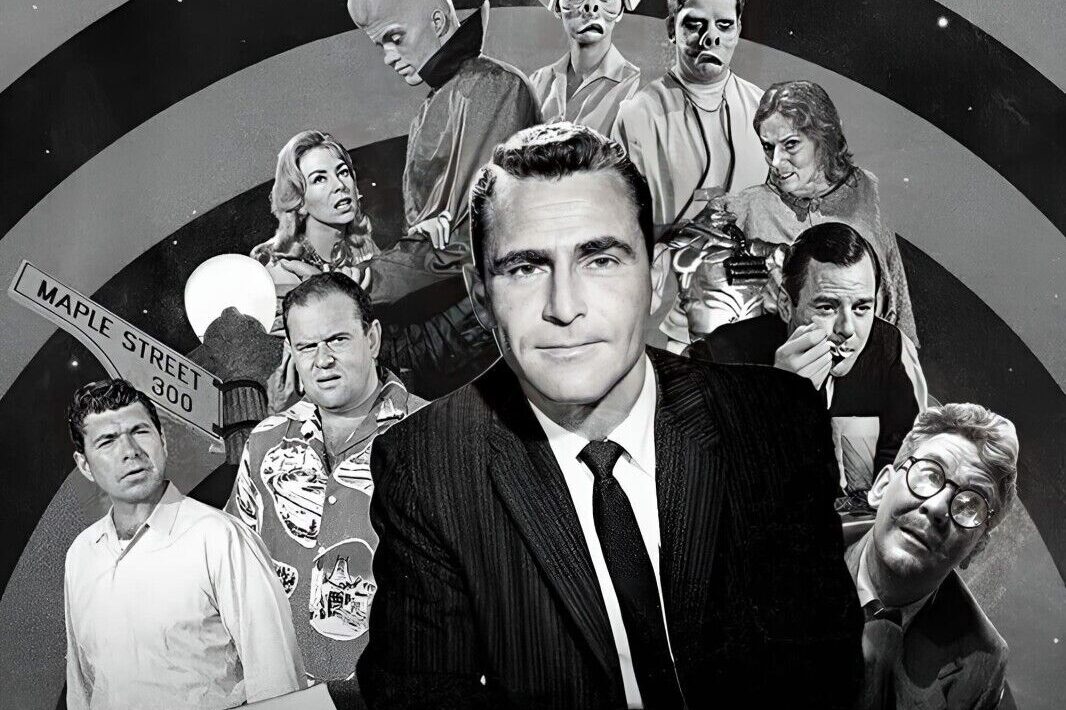
Rod Serling’s anthology used eerie sci‑fi twists to critique nuclear paranoia, McCarthyism, and forced conformity. In “The Monsters Are Due on Maple Street,” for instance, neighbors turn on each other when darkness falls; showing how quickly fear breeds hysteria. In “The Obsolete Man,” a librarian is condemned by a totalitarian state for being “non‑productive,” emphasizing individual dignity over ideological control. Serling’s stories blend social allegory with horror, subtly condemning xenophobia, government overreach, and blind nationalism via everyday settings turned uncanny.
2. The Prisoner – Surveillance & Rebellion

The Prisoner, a 1967-1968 British television series, explored the themes of surveillance, rebellion, and the psychological impact of control within a seemingly idyllic but sinister village. The protagonist, Number Six, becomes a rebel against a system that monitors and manipulates its inhabitants through a panopticon-like structure, where constant observation and the possibility of being watched induce a sense of self-regulation and conformity.
Beneath the cryptic symbolism lies a powerful message: modern society robs individuals of autonomy through surveillance, societal expectations, and the loss of personal identity. Rebellious acts by prisoners, like the Stanford Prison Experiment’s or the Attica Prison riot, demonstrate a response to perceived oppression and surveillance, while Foucault’s theories suggest that surveillance can lead to internalization of discipline and self-governance. Though overt symbolism runs tall, the core is simple; conformity is prison, and rebellion is freedom.
3. MAS*H – War’s Absurdity Unmasked
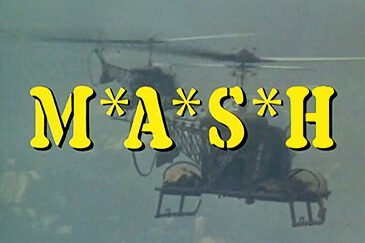
The MAS*H TV series, a comedic adaptation of the film, depicted the 4077th Mobile Army Surgical Hospital (MASH) unit during the Korean War, offering a darkly humorous portrayal of life in a MASH unit. While the series presented a fictionalized view, it provided insight into the challenges and absurdities of war, particularly from the perspective of those working in the medical field. The series’ popularity led to a strong cultural impact, reflecting and commenting on societal issues of the time.
Episodes like “Sometimes You Hear the Bullet” show Hawkeye cleaning up after gruesome casualties, sparking raw reflections on duty and trauma. It continued this through the finale “Goodbye, Farewell and Amen,” earning over 100 million viewers and cementing its anti-war message. Behind the laughs, MAS*H was war-critique art; highlighting military bureaucracy, emotional scars, and the chaos hidden behind uniforms.
4. Battlestar Galactica (2004) – Faith & Fear in Space
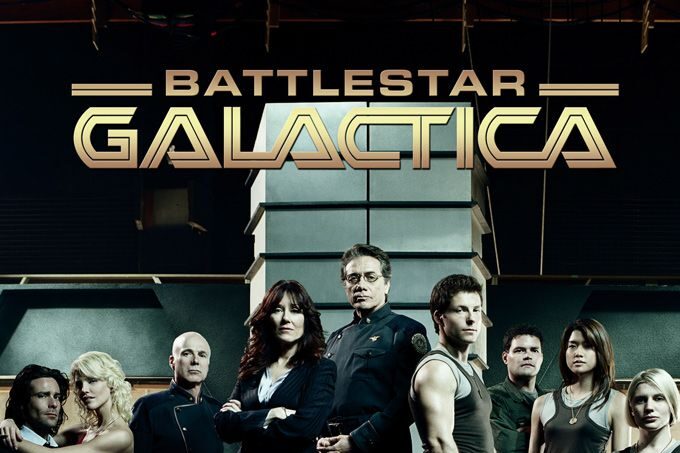
The 2004-2009 “Battlestar Galactica” series follows the aftermath of a Cylon attack that nearly wipes out the human race. The Cylons, a cybernetic race of the same creation, launch a surprise attack, destroying most of the Twelve Colonies and killing billions of humans. The surviving humans, led by Commander William Adama and President Laura Roslin, embark on a desperate journey to find the fabled Earth, while being pursued by the vengeful Cylons.
This reimagined epic wraps a post-9/11 political critique in sci‑fi: the human survivors, hunted by their Cylon enemies, echo real-world terror threats, scapegoating, and crisis governance. It questions religious extremism, communal paranoia, and state overreach; highlighting how fear spawns authoritarianism, in both humanity and divinity. Commander Adama and President Roslin’s clash between military rule and civilian rights mirrors real-world debates on security vs. liberty, showing how faith and politics intertwine under threat.
5. The Simpsons – Satirical Forecasts & Political Jabs
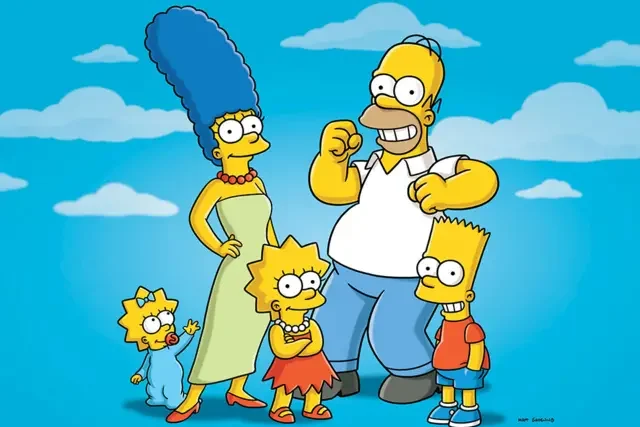
The Simpsons hides a wealth of sharp political satire and uncanny “predictions” beneath its animated facade. For instance, the 2000 episode “Bart to the Future” jokingly casts Donald Trump as a bankrupt president; a gag that became disturbingly prescient when Trump won in 2016. The show routinely skewers politicians and social issues; like the immigration in “Much Apu About Nothing,” climate denial through Lisa’s activism, and even critiques of global events like China’s censorship of Tiananmen Square references. Reddit users and cultural analyses often note how quickly Springfield mirrors the real world, blending comedy with a mirror held up to society.
6. The X‑Files – Conspiracies & Institutional Distrust
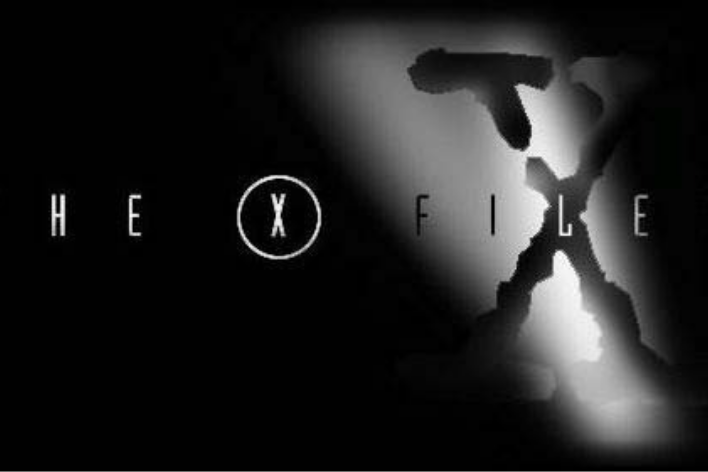
The core of The X-Files revolves around themes of distrust, government secrecy, and media manipulation, explored through the lens of paranormal mysteries. The “Syndicate,” a fictional shadowy organization connected to aliens, persistently conceals information from the protagonists, Mulder and Scully, reflecting real-world anxieties about government cover-ups and conspiracies. Episodes like “Unrequited” highlight U.S. military deceit regarding POWs left behind in Vietnam; a blunt critique of institutional lies, making critics and creators alike believe The X‑Files tapped into “extreme scepticism” prevalent in both the 1990s and today.
Its catchphrases; “The Truth Is Out There,” “Trust No One,” “Deny Everything”; resonate in our post-truth era, where conspiracy theories run rampant and institutional trust is fraying. Beyond spooky chills, the show planted seeds of doubt, urging viewers to question official narratives and media spin; long before “fake news” became a household phrase.
7. All in the Family – Bigotry in the Spotlight
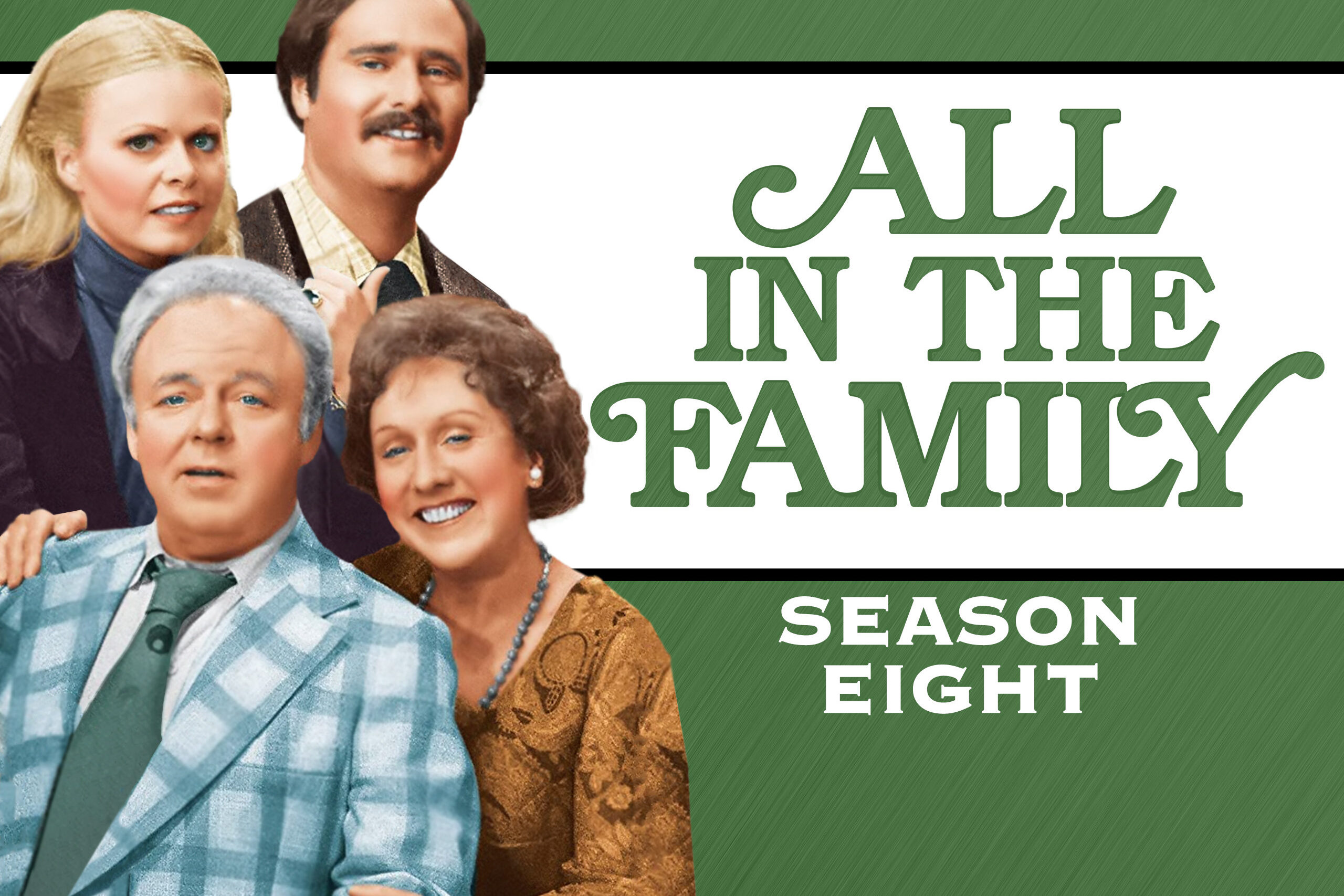
“All in the Family” revolutionized television by placing unapologetic bigotry at the center of its narrative. The character of Archie Bunker, portrayed by Carroll O’Connor, was a working-class man whose prejudiced views were often challenged by his more liberal family members. This dynamic created a platform for discussing sensitive topics such as racism, sexism, and generational conflict. The show’s bold approach to these issues resonated with audiences and critics alike, earning it critical acclaim and a lasting legacy in television history.
Episodes like “The Draft Dodger” and “Gloria Discovers Women’s Lib” tackled contemporary social issues head-on, using humor to shed light on the prejudices and biases prevalent in society. By presenting these issues through the lens of a sitcom, “All in the Family” made complex social commentary accessible and engaging, prompting viewers to reflect on their own beliefs and attitudes.
8. Star Trek – Cold War and Civil Rights in Space

“Star Trek: The Original Series” used its futuristic setting to address contemporary issues such as Cold War tensions and civil rights. The show’s diverse cast and allegorical storytelling allowed it to explore themes of racism, war, and diplomacy in a way that resonated with the social climate of the 1960s.
Episodes like “Let That Be Your Last Battlefield” depicted the absurdity of racism through the portrayal of two characters who are identical except for their skin color. This stark visual representation highlighted the irrationality of racial prejudice. By embedding these themes in a science fiction context, “Star Trek” provided a platform for discussing serious societal issues in an engaging and thought-provoking manner.
9. South Park – Satire of Modern Society
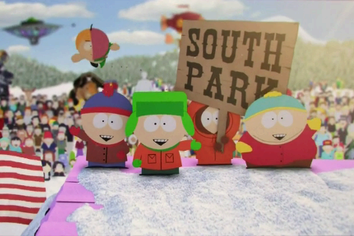
“South Park” is renowned for its fearless and often controversial satire of contemporary issues. The show’s creators, Trey Parker and Matt Stone, use the fictional Colorado town of South Park as a microcosm to comment on real-world events and societal norms. Through its crude animation and dark humor, the series tackles topics ranging from politics and religion to celebrity culture and social justice movements.
Episodes like “The Pandemic Special” and “The Pandemic Special” satirize the global response to the COVID-19 pandemic, highlighting the absurdities and contradictions in public health policies and societal reactions. By exaggerating real-world issues, “South Park” encourages viewers to critically examine the world around them and question the status quo.
10. Good Times – Race and Poverty in the Urban Landscape
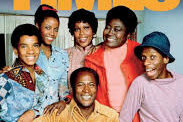
“Good Times” was a groundbreaking sitcom that depicted the lives of an African American family living in a Chicago housing project. The show addressed issues such as poverty, systemic racism, and the challenges faced by Black families in urban America. Through the experiences of the Evans family, “Good Times” highlighted the resilience and strength of Black communities in the face of adversity.
Episodes like “The Big Move” and “The Rent Party” showcased the family’s struggles with economic hardship and the impact of systemic inequality on their lives. Despite the challenges, the Evans family remained united and hopeful, embodying the show’s message of perseverance and solidarity. “Good Times” not only entertained but also educated viewers about the realities of race and poverty in America.
11. Twin Peaks – Trauma & America’s Hidden Decay
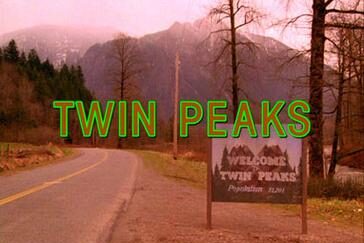
Twin Peaks taps into the shadowy underbelly of small-town America, using surreal imagery and deep symbolism to address trauma, abuse, and societal rot. Lynch’s use of dualities; bright midday innocence vs. ominous midnight secrets; symbolizes the conflict between surface smiles and inner decay. One fan on Reddit noted how the series feels like “dreams within dreams,” showing consciousness unable to reconcile trauma, internalizing pain in eerie, uncanny ways.
The iconic imagery; like the dual Venus statues in the Black Lodge, represents conflicting identities and moral ambiguity, especially surrounding Laura Palmer’s story. Through surreal mystery, Twin Peaks forces us to face the unspoken grief and cracks in American life, making horror a compelling lens for cultural critique.
12. The Smothers Brothers Comedy Hour – Counterculture Challenged
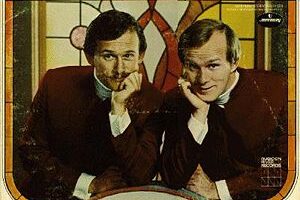
This ’60s variety show was one of the first to slip anti-war and counterculture messages into mainstream TV, pushing boundaries until CBS pulled the plug. They featured Pete Seeger singing “Waist Deep in the Big Muddy”; a veiled critique of Vietnam; only to have it censored, then reinstated under public pressure. With appearances by Joan Baez and George Harrison, the show became a hub for youth dissent, leading Nixon to reportedly place them on an “enemies list”. The network’s censorship of civil rights and anti-war commentary made the show a template for pushing political discourse on TV; and its abrupt cancellation in 1969 showed just how threatening honest satire could be.
13. Mr. Robot – Capitalism, Identity & Control
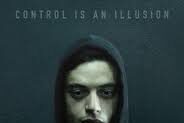
Mr. Robot foregrounds corporate critique through the fractured lens of Elliot, a hacker plagued by mental illness and disillusionment. Critics praised it as “the most explicitly anti-capitalist work of mainstream pop culture” since Snowpiercer, showing visceral hatred for corporate culture and modern debt systems. The show’s portrayal of “Evil Corp” echoes real-world mistrust of conglomerates, but makes it unsettlingly nuanced; its “evil” is familiar and plausible.
However, the show’s self-awareness around its paradox; whether entertainment can truly revolt or subtly reinforce the status quo; is part of its critique. In a media landscape awash with consumerism, Mr. Robot uses psychological fragmentation and dramatic tension to challenge our complicity in systemic control. Each show; whether inComedy, sci-fi, or thriller form; turns entertainment into a vessel for reflection and resistance.
This story 13 TV Shows That Were Sending Secret Messages All Along, You Just Missed Them was first published on Daily FETCH


